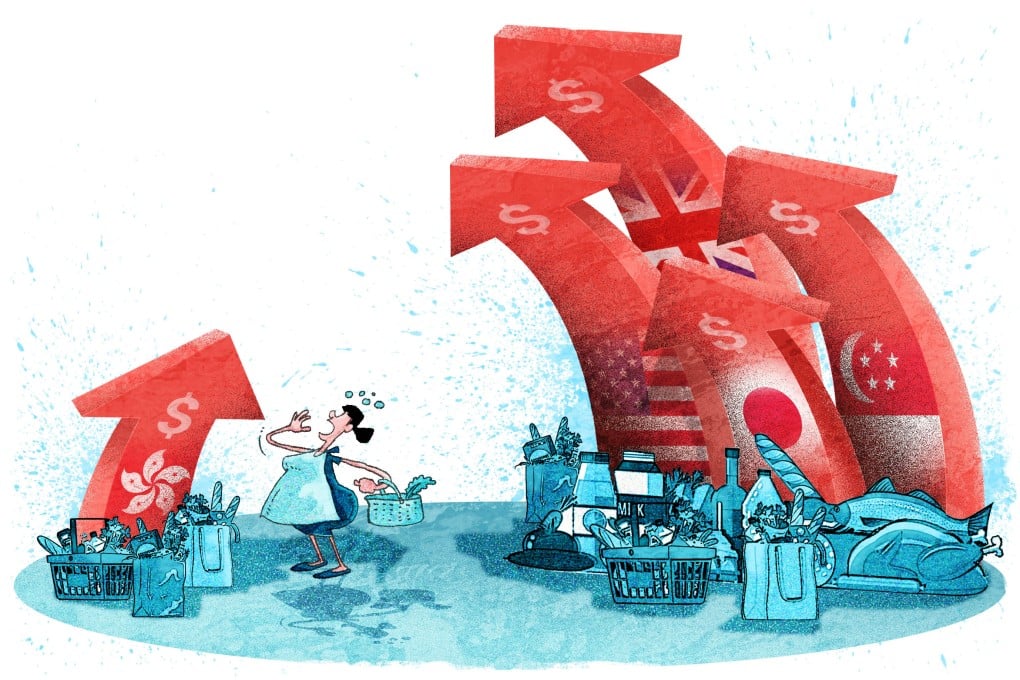Hong Kong’s inflation: nowhere as bad as other global cities but why are some still feeling the pain of higher prices, especially for food and transport?
- Hong Kong has escaped relatively unscathed even though the city relies on imports
- But many among the city’s underprivileged are feeling the effects of low but festering inflation

It is late afternoon near closing time and stall holders at a crowded Sheung Shui market are slashing prices. Single mum and dole recipient Amy Wong, 35, makes a beeline for the bargains to feed her family of three. In her purse is her daily budget of HK$150.
She pops into a butcher’s shop to buy a catty of pork for HK$29, then picks up a packet of buns for HK$25 which will do as breakfast for her children, aged four and nine. She then races to another shop to buy some bananas for HK$20 before getting a small bag of vegetables for HK$23 and then she rushes over to another stall to buy two trays of eggs for HK$40.
“The food costs less than HK$140 but it will be enough for making three meals which is the most important and fundamental thing for our family’s survival,” she said.
“But I can’t make soup as the ingredients will cost a lot more,” she lamented. “Life has become very difficult for us. I have no choice but to tighten my belt to feed my two children.”

Wong is among the city’s underprivileged feeling the effects of low but festering inflation, as life becomes more difficult for this group of residents battling a host of price rises on a range of goods, from food to electricity to looming increases in transport fares.
